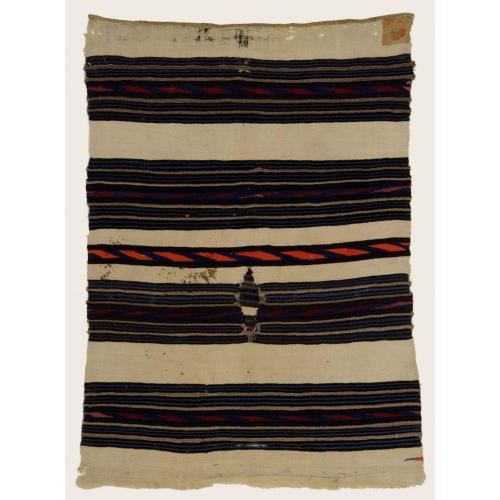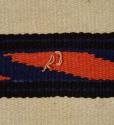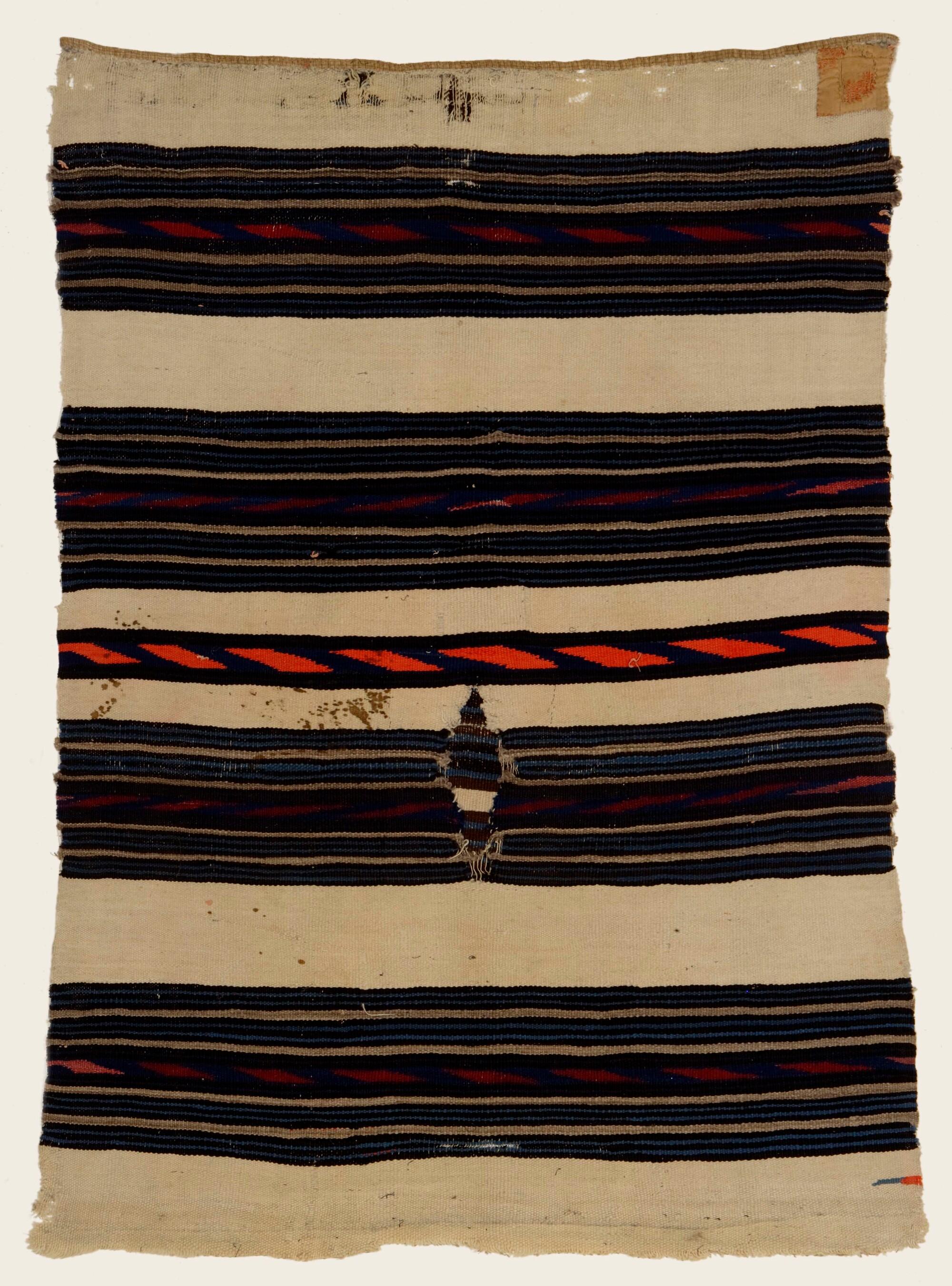
Photograph by Addison Doty. Copyright 2010 School for Advanced Research.
Blanket | Shocha
Date: 1870-1880
Artist or Maker: Unknown
Dimensions:
180 × 132 cm (70 7/8 × 51 15/16 in.)
Medium: wool | dyes
Credit Line: Gift of Andrew Dasburg, 1940.
Place Made:
Zuni Pueblo, McKinley County, New Mexico, Southwest, United States, North America
Object Number: IAF.T337
Not on view
Tribal Collection Review RemarksOctavius Seowtewa during collection review visit Nov. 16 and 17, 2009 (Events Record “Collection Review: Zuni Tribe, Review 3”): This is a ceremonial textile called a “shocha” in the Zuni language. Shochas were woven by men in the kivas and worn by men specifically for use in ceremonies. For example, during Shalako, each koyemshi would wear a shocha. These textiles were kept for ceremonial use and were not items of everyday use or wear. They are usually loosely-woven plain weave textiles, quite different from the tighter twill weave of the ba’inne (manta/shawl) textiles. Shocha textiles are used in ceremonies, and this one was likely used in ceremony, as evidenced by deer hairs present on the surface of the piece. Remnants of pink strings located at symmetrical points on the blanket may have been used to tie a buckskin hood or cape to the blanket so that it would not fall off during the ceremony (see detail photos). The hole in the center, mended with a piece of another blanket with a similar pattern, may have resulted from repeated sitting on the same spot.
In a contemporary context, shochas are now used in the home, either stored or put on display. Today, commercially-made saddle blankets or Navajo-made rugs are often used in place of shochas. This piece should be considered ceremonial because it was made to be worn in a ceremonial context and, additionally, there is physical evidence that it was used in ceremony.
In Collection(s)
Bibliography:
The Indian Arts Research Center, in collaboration with Native American community scholars, strives to present accurate collections records. Records may be updated as new information becomes available and is reviewed with the Native American community having cultural affinity to particular items. Please write to iarc@sarsf.org if you have questions or concerns related to the documentation.



